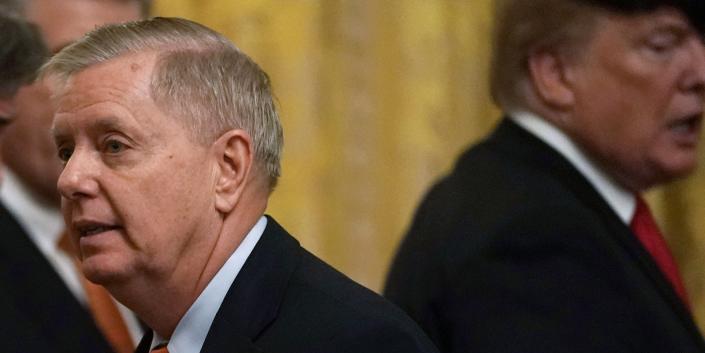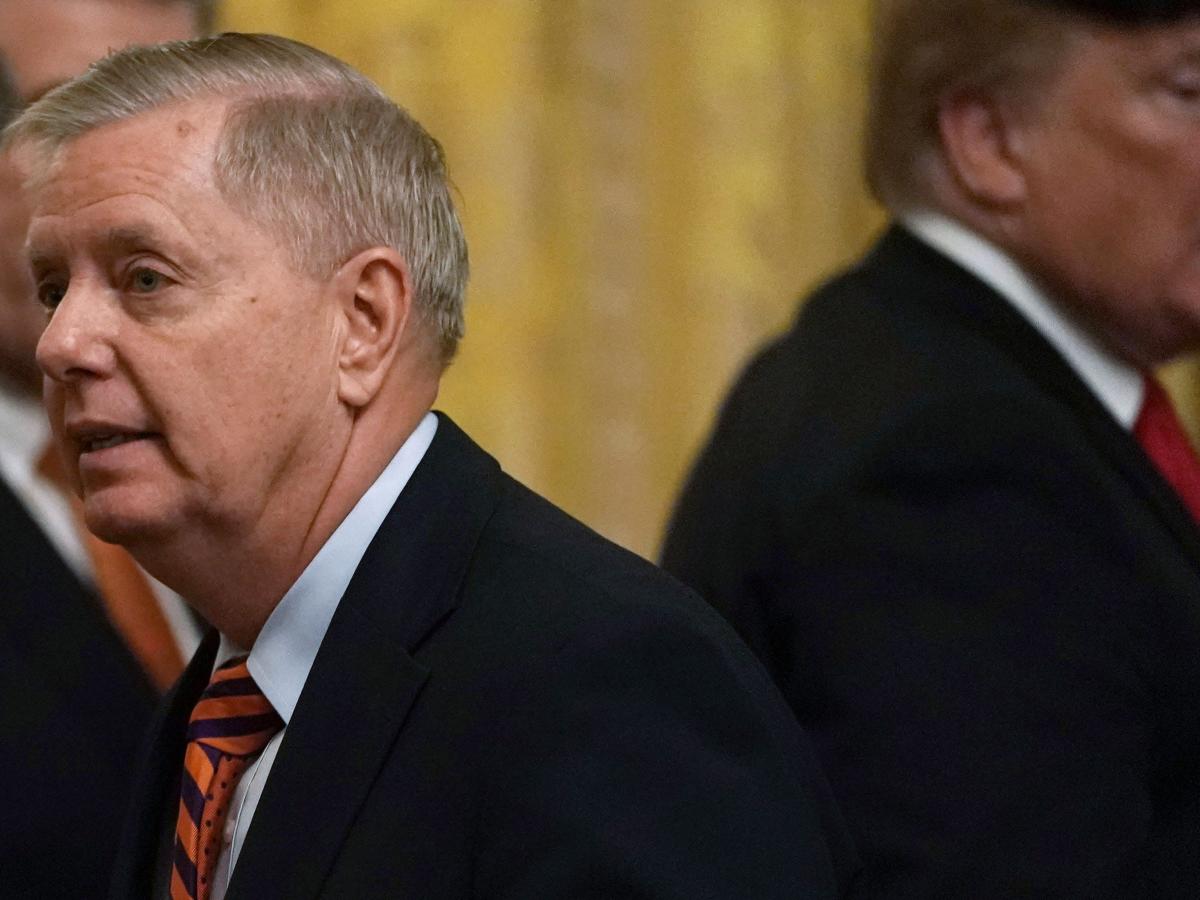
-
Lawyers for Senator Lindsey Graham try to quash a subpoena related to the 2020 election.
-
Graham has been asked to testify before a Grand Jury in Georgia over phone calls he made with Brad Raffensperger.
-
Graham’s attorneys say the South Carolina Republican enjoys immunity under the US Constitution.
Attorneys for Senator Lindsey Graham argue the South Carolina Republican cannot be forced to testify before a grand jury in Fulton County over alleged election meddling, claiming he enjoys “absolute immunity” under the U.S. Constitution for phone calls he receives. submitted to the Secretary of State for Georgia Brad Raffensperger.
Fulton County District Attorney Fani Willis has been investigating efforts by former President Donald Trump and his allies to pressure officials in Georgia to reverse President Joe Biden’s victory.
Graham, one of the former president’s closest allies, was ordered to appear before a grand jury earlier this month. Others subpoenaed include Rudy Giuliani, Trump’s former personal attorney.
It involves phone calls Graham allegedly made in November 2020 with Raffensperger, a fellow Republican who would later pressure Trump to “find” him the votes needed to claim victory in the state.
Raffensperger told The Wall Street Journal at the time that Graham had called him and suggested throwing out all ballots from counties with a high percentage of mismatched signatures. He refused. “We have laws,” Raffensperger said.
Graham has disputed that characterization of the phone call, insisting that he only wanted to know more about the state’s electoral processes.
In a filing Wednesday in a U.S. court, attorneys for the senator argued that the talks cannot be subject to legal scrutiny anyway, and that the subpoena — which was upheld Monday by a state judge in Georgia — should be dismissed.
They insist that he be protected by the Constitution’s Speech and Debate Clause, which states that federal lawmakers “will not be questioned anywhere else” for their comments during legislative sessions. Graham’s calls fall under this “legislative sphere,” because they could potentially be used to draft new laws.
In an analysis published by NBC News, Carol C. Lam, a former U.S. attorney, called Graham’s response to the subpoena “disturbing,” arguing that the senator’s legal response is a delaying tactic that “implies Georgia’s ability to investigation of possible electoral corruption within its borders”. †
However, Kermit Roosevelt, a constitutional law expert at the University of Pennsylvania, told Insider that Graham’s lawyers’ argument is, to say the least, “plausible.”
“The speech or debate clause, if you just look at the text, it seems to be about things members of Congress say on the floor, but the court has read it more broadly,” Roosevelt said. The question is whether the court will accept Graham’s characterization of his intent, prima facie, or will itself examine the content of his conversations before deciding whether they were loosely “legislative” in nature.
A spokesman for the Fulton County District Attorney did not immediately respond to a request for comment.
Read the original article on Business Insider

